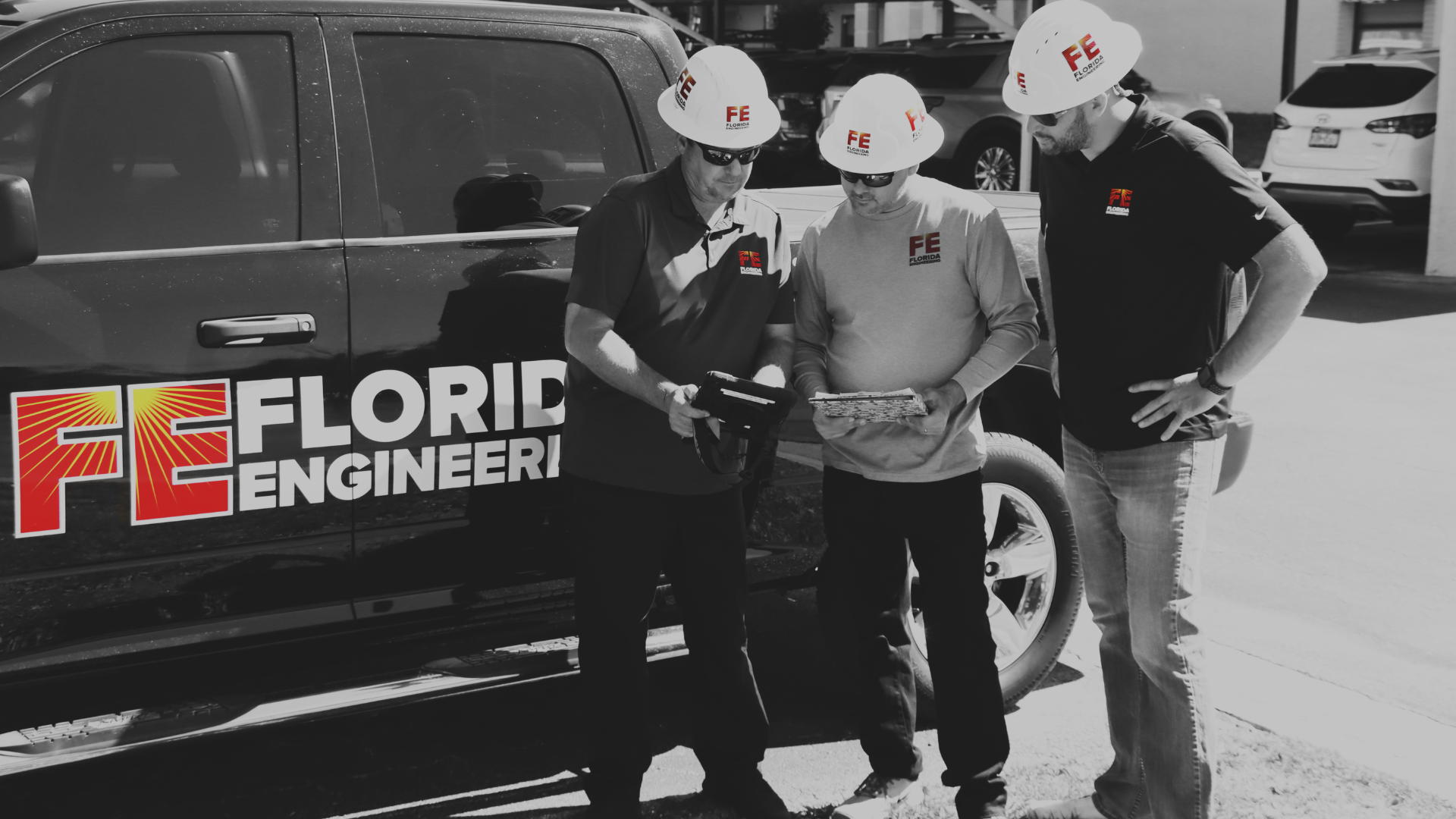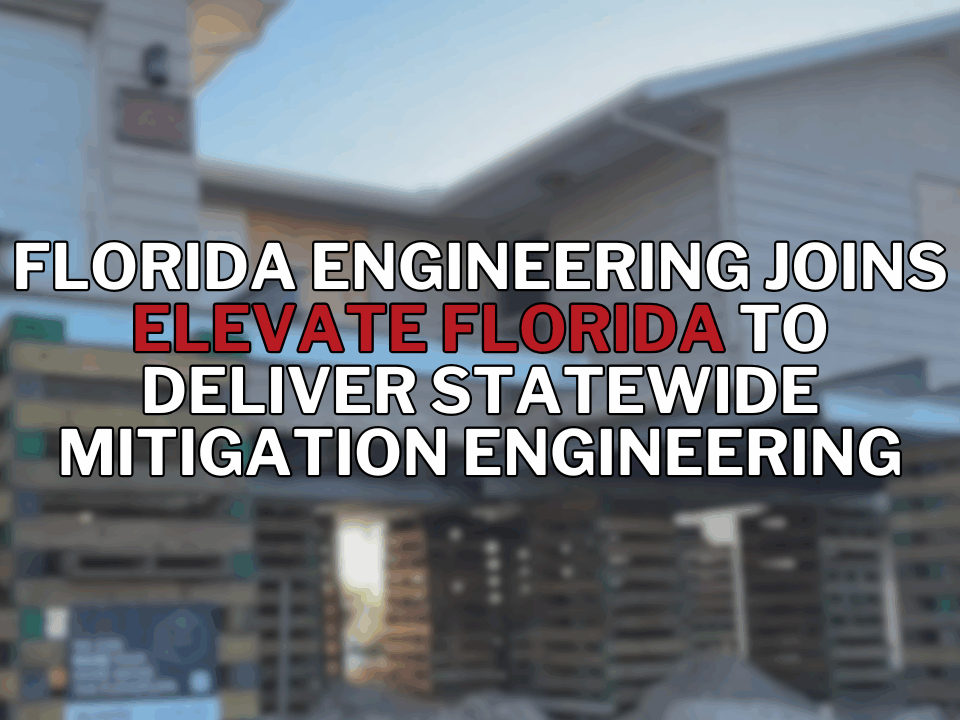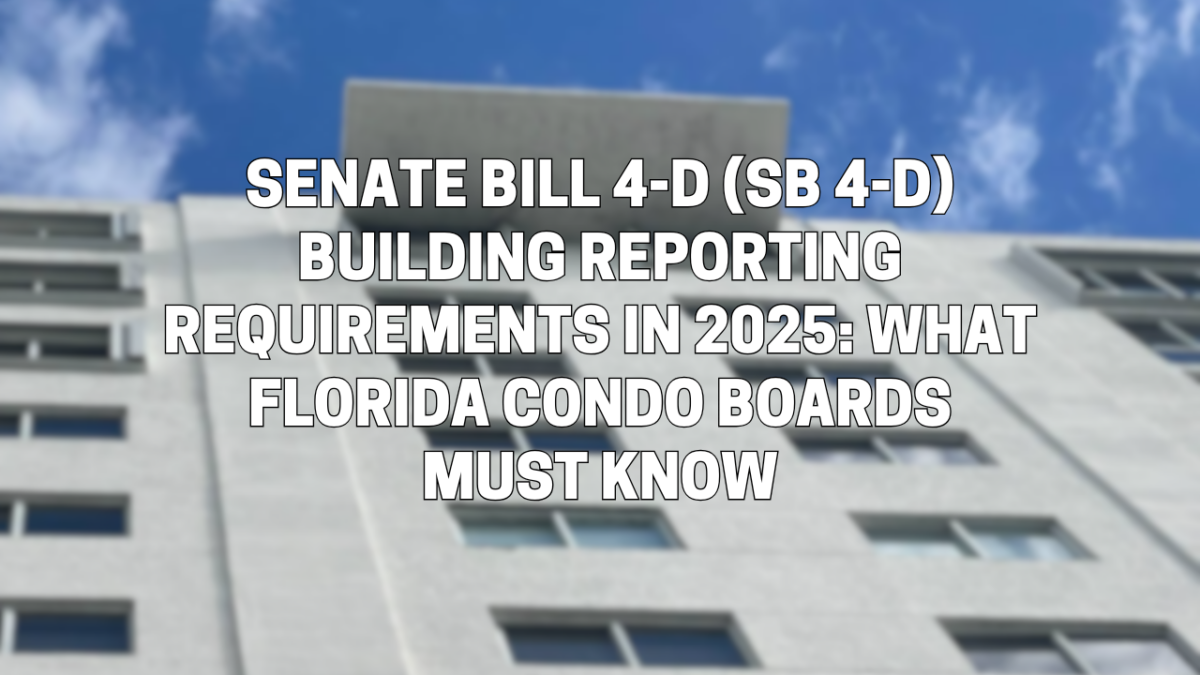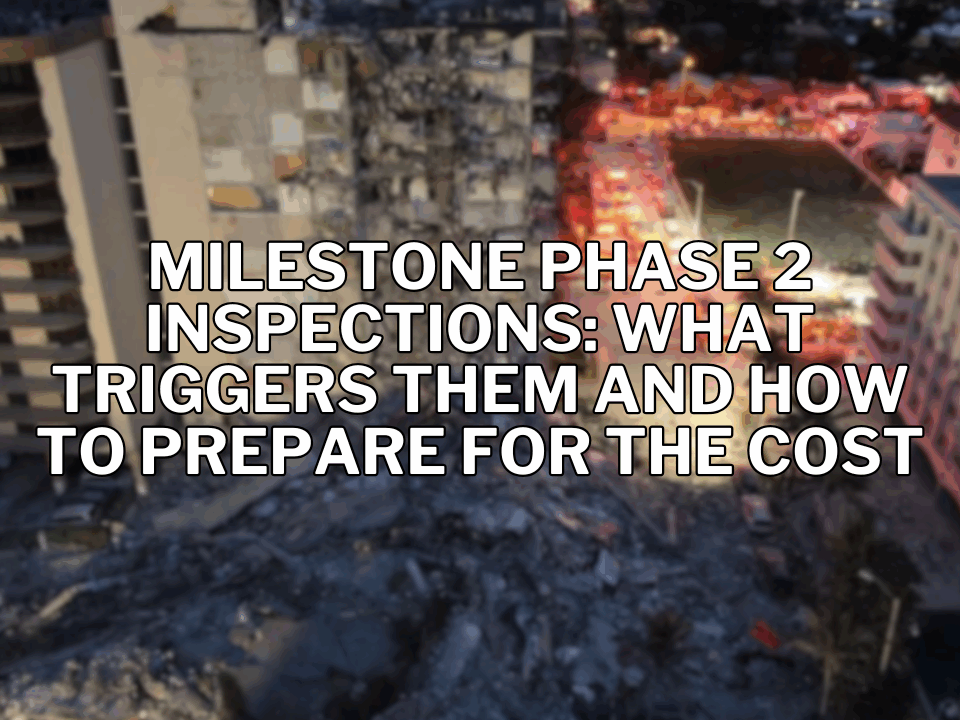Florida’s Senate Bill 4-D (SB 4-D) has reshaped the safety and reporting obligations for condominium and cooperative associations. If your building is three stories or higher, understanding these mandates is crucial for compliance, resident safety, and legal protection. Here’s what every board member, property manager, and unit owner need to know in 2025.
Table of Contents
- Overview of SB 4-D
- Initial Building Reporting: What Was Due by January 2023
- Milestone Structural Inspections: Deadlines & Process
- Structural Integrity Reserve Studies (SIRS)
- Annual Reserve Reporting to Unit Owners
- Summary Table: SB 4-D Reporting Requirements
- Enforcement, Penalties & Fiduciary Duties
- Key Takeaways for 2025 and Beyond
- Conclusion: Stay Compliant with Florida Engineering LLC
1. Overview of SB 4-D
Enacted in 2022 following the Surfside tragedy, SB 4-D mandates robust inspection and reserve protocols for buildings three stories or more in height. The law targets the structural integrity and long-term financial planning of condominiums and cooperatives, ushering in mandatory inspections, reserve studies, and public disclosures.
2. Initial Building Reporting: What Was Due by January 2023
By January 1, 2023, all qualifying condominium associations existing before July 1, 2022, were required to report the following to the Division of Florida Condominiums, Timeshares, and Mobile Homes:
- Number of buildings three stories or higher
- Total number of units in these buildings
- Building addresses
- County locations
Submission Methods: Email, postal service, commercial delivery, or hand delivery using a state-provided form.
Public Access: This data is now available in a searchable public database hosted by the Division.
3. Milestone Structural Inspections: Deadlines & Process
Who Must Comply?
Condo and cooperative buildings three stories or more in height.



When Are Inspections Required?
- At 30 years of age, unless within 3 miles of the coast, in which case 25 years
- Every 10 years thereafter
- Buildings with COs issued before July 1, 1992, must inspect by December 31, 2024 (or possibly 2025 per SB 154)
What’s the Process?
- Phase One: Visual structural examination by a Florida-licensed architect or engineer
- Phase Two: Triggered if Phase One reveals structural concerns; may involve invasive testing
Reporting Requirements:
- Must be signed and sealed
- Shared with the association, local officials, and kept on file 15 years
- Must be accessible to tenants and prospective buyers
4. Structural Integrity Reserve Studies (SIRS)
Frequency:
- Every 10 years
Scope:
- Visual inspection of key structural components: roof, load-bearing walls, foundation, plumbing, fire systems, etc.
- Estimates remaining life and repair/replacement costs
Who Can Perform It?
- Visual inspection: Must be by a licensed engineer or architect
- Other elements can be handled by certified reserve specialists
Key Financial Mandates:
- Reserve funding based on SIRS findings is mandatory
- After December 31, 2024, no waivers or partial funding for structural component reserves are allowed
5. Annual Reserve Reporting to Unit Owners
Condominium boards are required to issue an annual report summarizing:
- Current reserve balances
- Status of required milestone inspections and SIRS
- Any planned or ongoing repairs
This report ensures transparency and keeps all unit owners informed.
6. Summary Table: SB 4-D Reporting Requirements
| Requirement | Who Reports/Performs | Frequency/Deadline | Recipients/Records |
|---|---|---|---|
| Initial Building Data Report | Association Board | January 1, 2023 | State Division (DBPR) |
| Milestone Inspection | Licensed Engineer/Architect | 30/25 years, then every 10 years | Association, Local Officials, Public Access |
| Structural Integrity Reserve Study | Engineer, Architect, Specialist | Every 10 years | Association, Unit Owners |
| Annual Reserve Report | Association Board | Annually | Unit Owners |
| Report Retention | Association | 15 years | Available to tenants and buyers |
7. Enforcement, Penalties & Fiduciary Duties
Failure to comply with SB 4-D reporting can lead to:
- Fines and penalties
- Legal action by unit owners
- Loss of occupancy certification
Fiduciary Duty: Board members are legally obligated to complete these reports. Non-compliance may be considered a breach of fiduciary responsibility, exposing them to personal liability.
8. Key Takeaways for 2025 and Beyond
- Start Early: Inspection and reserve timelines are firm and time intensive.
- Stay Updated: Legislative amendments (like SB 154) can modify requirements.
- Be Transparent: Share reports with owners and document compliance actions.
- Use Professionals: Always engage licensed experts for inspections and SIRS.
9. Conclusion: Stay Compliant with Florida Engineering LLC
Understanding and implementing SB 4-D’s building reporting requirements is no longer optional, it’s the law. Florida Engineering LLC is your trusted partner for structural inspections, reserve studies, and compliance reporting. Our team ensures your building meets every deadline and standard, protecting both your residents and your board.
Contact Florida Engineering LLC today for a consultation and ensure your building’s safety and compliance for years to come.






